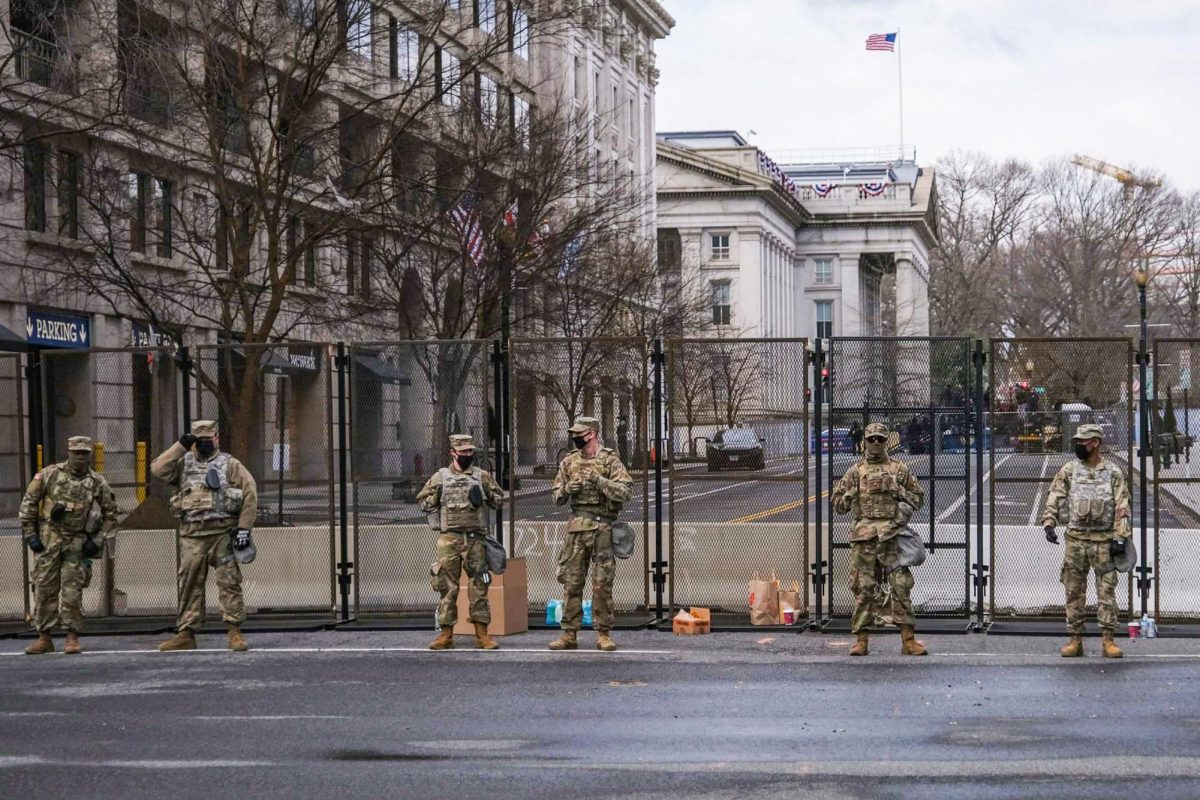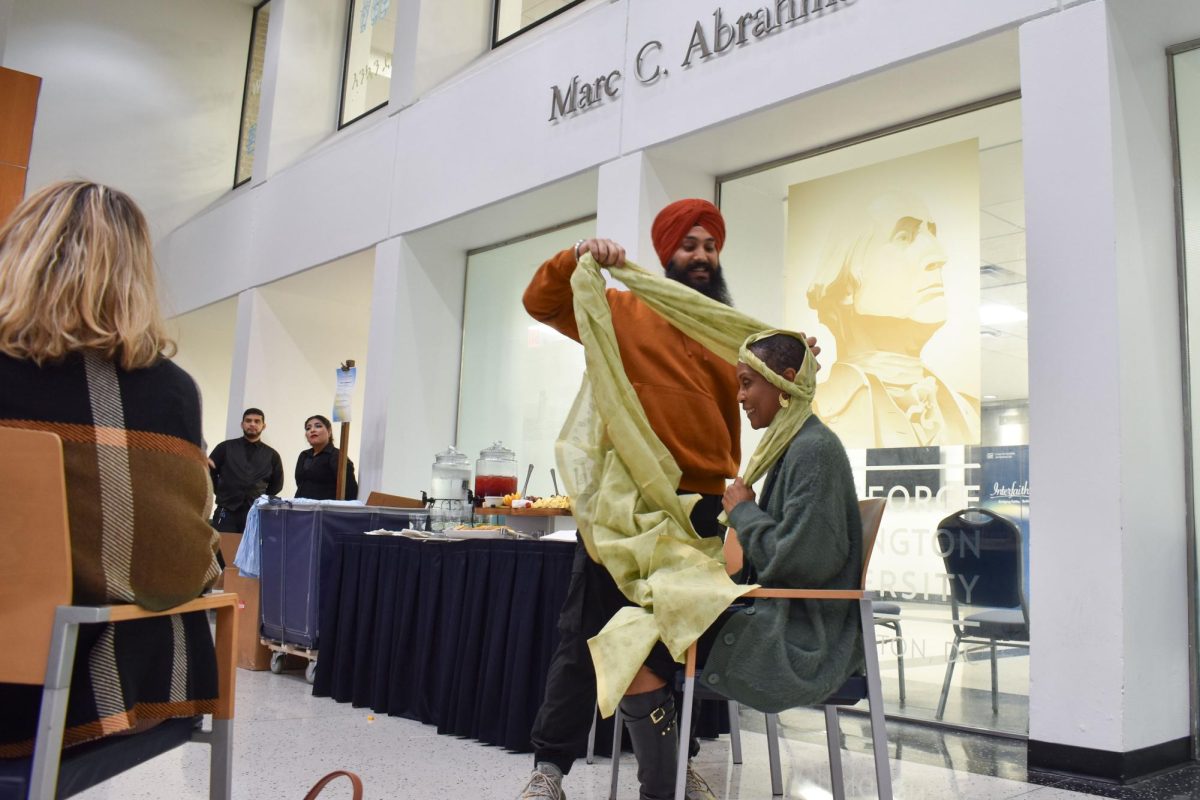Student Bar Association senators said they met with deans to discuss instating a fall break for law students during their final meeting of the semester Tuesday.
SBA Sens. Bernard Baffoe-Mensah and Tyra Satchell said they attended a meeting with GW Law Deans Jason Belk and Anthony Tiberio to discuss changing the fall semester schedule to include a fall break modeled on Georgetown Law School and other D.C.-based law school schedules. Baffoe-Mensah said SBA President Shallum Atkinson told senators to gauge law students’ feelings on the proposed break before a decision is made, which if implemented, may mean the fall semester would begin at an earlier date.
Baffoe-Mensah said he and Swindell also discussed accommodating registration times to be more accessible for part-time and evening students with the deans because the current registration sessions conflict with their classes. He also asked about acquiring more resources for part-time students, including a designated dean or faculty point person. SBA Sen. Anissa Tanksley, an evening student, said balancing registration with classes and seeking out accommodations has been a challenge.
“I will say it feels like such an obvious answer to an awkward question that will probably not be resolved in my time here, but I want to throw it out and continue to throw out the need for evening students to have an evening dean or a part-time dean who’s working hours that coincide when evening students are here,” Tanksley said.
Baffoe-Mensah said he believes Tiberio is the designated administrator for part-time and evening students. SBA Sen. Tyra Satchell said there has been an ongoing conversation with the Evening Student Law Association about part-time and evening students having to go out of their way to seek help in ways that full-time students do not.
“I also just want to highlight that part-time students are the only students that are expected to make singular appointments to make sure that they have access to the resources that they’re entitled to by the University, and I think that’s a very big equity issue,” Satchell said.
SBA senators also voted to approve the Mental and Emotional Student Health Society, which passed unanimously. Matt Brajuka, a law student who introduced the organization to senators, said the MESHS will aim to provide mental health programming and educational resources at the law school, which law students have supported because they feel mental health awareness is a blind spot for the school. He said many students are unaware of the Lerner Hall student wellness center’s mental health offerings.
“I just think that is indicative of the fact that the law school could be doing more to address the mental and emotional health needs of GW Law students,” Brajuka said.
Senators also unanimously voted to approve the FinTech Law Society. Anwar Mojumder, who introduced the organization, said he felt inspired to create an organization that will help educate students about the rise of financial technology, like mobile banking and other digital platforms. He said the organization will discuss establishing policy around new innovations and the growing industry.
“The goal would be to educate students and analyze how FinTech innovations are transforming the financial regulatory landscape,” said Mojumber.
Atkinson advised senators to be wary of approving student organizations that are similar to existing organizations because the SBA’s limited funds after senators approved four new student organizations this semester. The SBA allocates funds to student organizations once a year at the beginning of the fall semester.
“We’re on pace to be over 70 student organizations by the end of this fiscal year, and I imagine the budget is not going to improve,” Atkinson said.
Senators rejected an ad hoc request that would have allocated $967.33 to Luisa Lamprea Barragan to fund her and her team to attend the John Jackson Moot Court Competition in Bogota, Colombia during the spring. SBA Sen. Akhil Kambhammettu, the chair of the Finance Committee, said Lamprea Barragan reached out to Dean David Johnson to fund the request, but the Dean said the law school does not fund international competitions.
Senators disagreed on if Johnson’s email signaled that Lamprea Barragan and her team could request funds from the SBA as they allocate the University’s money to students. SBA Sen. Sarah Gates said interpreting Johnson’s email as incorrectly signaling the club to request money from the SBA may tarnish the relationship between the SBA and GW Law administration.
“If we vote a certain way, it could cause an issue with the administration,” Gates said. “I’m thinking about future competitions.”
Senators unanimously voted to allocate $101.90 of ad hoc funding to the Women of Color Collective to reimburse them for the catered food at their fall networking and community building event.
During his presidential report, Atkinson also said applications for the new professional development fund will likely be sent to students in the SBA’s newsletter next week.





